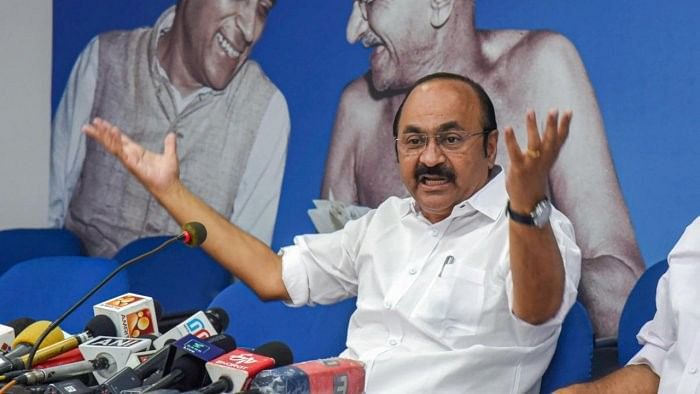
V D Satheesan.
Credit: PTI Photo
Thiruvananthapuram: The Congress-led UDF on Tuesday accused the Left government of passing bills in the House in the "Narendra Modi style" by choosing not to hold any discussions with the opposition.
Leader of Opposition in the State Assembly V D Satheesan, during the house proceedings in the afternoon, lodged a protest with the Speaker regarding the passing of the Kerala Municipality (Second Amendment) Bill, 2024 and the Kerala Panchayat Raj (Second Amendment) Bill, 2024 on Monday without any discussion in the house.
Satheesan said that according to the agenda of the house for June 10, the two bills were to be sent to the relevant subject committees.
However, while the opposition was protesting in the well of the house with regard to its demand to register a case under the Prevention of Corruption Act into the allegations with regard to the "amendment" of the state's liquor policy, the two bills were passed by the assembly, he said.
Satheesan, as well as senior Congress leader Ramesh Chennithala and UDF MLA N Samsudheen, said that what happened was wrong, something that has never occurred in the past, and it has set a bad precedent in the house.
The opposition demanded a ruling from the speaker suspending the passage of the bills.
Satheesan said that the bills were passed "in the same way as the Sangh Parivar government does in Parliament", and staged a walkout as Speaker A N Shamseer rejected their demand to suspend the two legislations.
Speaker A N Shamseer did not agree with the opposition demand based on the submission by state Local Self Government Minister M B Rajesh who contended that the bills needed to be passed urgently as the procedures, including ward delimitations, related to the local body elections to be held in 2025 should be completed in a timely manner.
The speaker also said that in the past many bills have been introduced and passed in the House without sending them to the committees for consideration and without discussion in the assembly.
At the same time, Shamseer conceded that it was "most desirable" that all bills, except financial bills, be passed after consideration by the concerned subject or select committees.